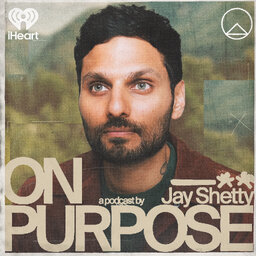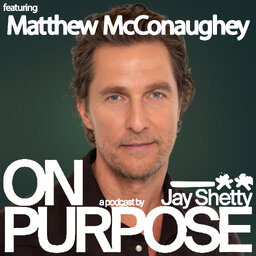Neha Kumar ON: Building Resilience to Negativity & How to Make Your Passions Practical
Do you want to meditate daily with me? Go to go.calm.com/onpurpose to get 40% off a Calm Premium Membership. Experience the Daily Jay. Only on Calm
Jay Shetty sits down with Neha Kumar to talk about women in business and motherhood. In a place where men dominate and are seen as rulers in a certain field, women will have to exert extra effort, time, and dedication to be in a position that is considerably equal to men. And when a woman has the passion for it, the will to persevere, and the favorable circumstances that allow her to flourish, she gets to be her best self for herself, her family, her career, and her goals.
Neha Kumar is the former COO & CFO of Create & Cultivate, an integrated platform designed to help millennial women achieve their full career potential, including new female entrepreneurs who require additional resources. Neha has a dynamic and entrepreneurial mindset. She is also an angel investor who is passionate about investing in game-changing businesses. As a current faculty member at the UCLA Anderson school, she teaches the next generation of undergraduates about entrepreneurial finance and management.
Want to be a Jay Shetty Certified Life Coach? Get the Digital Guide and Workbook from Jay Shetty https://jayshettypurpose.com/fb-getting-started-as-a-life-coach-podcast/
What We Discuss:
- 00:00 Intro
- 02:27 Congratulations on your 5th wedding anniversary!
- 04:40 The unconscious bias on women
- 08:14 Being a woman in business school
- 14:27 Education will give us a framework on how to think
- 21:23 How to teach students to think deeply
- 25:47 You want to be able to think strategically
- 31:07 The difference between a business and a passion project
- 36:53 Focus is a big deal
- 40:39 Work-life balance versus priorities
- 46:44 In the workplace, not everyone can empathize with you
- 50:40 Dealing with ‘mom guilt’
- 57:30 What do you look at when you invest?
- 59:06 Neha on Final Five
Episode Resources
- Neha Kumar | LinkedIn
- Neha Kumar | Twitter
- Neha Kumar | Instagram
- New Money Ventures
 On Purpose with Jay Shetty
On Purpose with Jay Shetty


